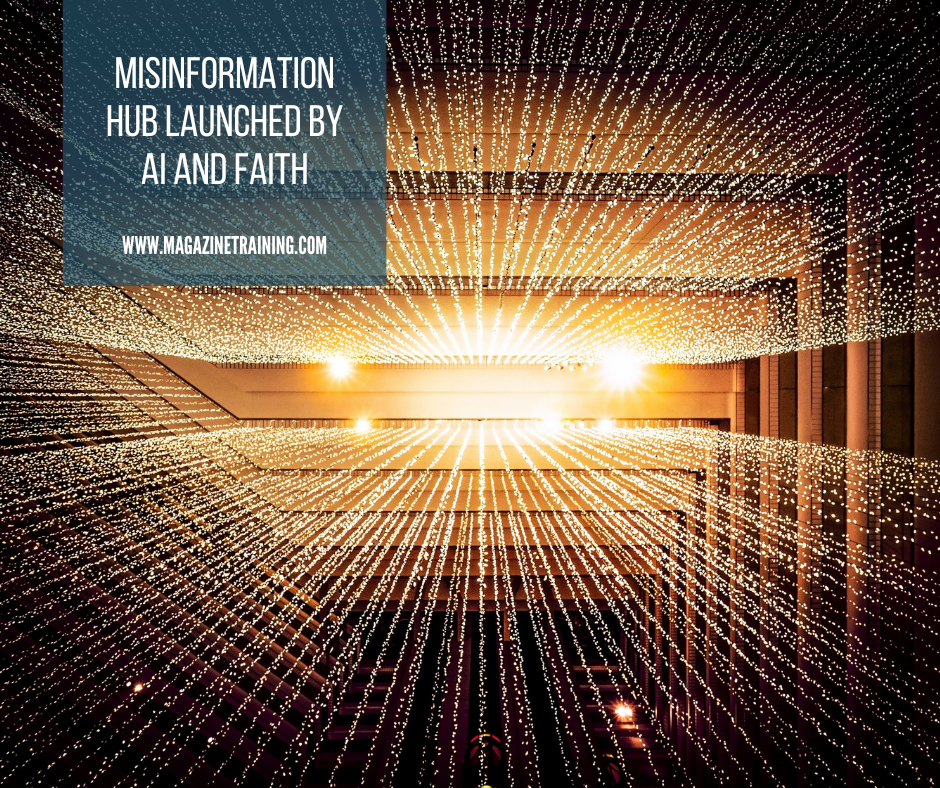
Why should people of faith care?
AI and Faith affirms the crucial role faith community plays in informing the development of AI. Hence, it is no surprise that we call on faith communities to set the standard for truth-telling in mitigating the spread of misinformation. This is especially important since recent research on COVID-19 misinformation showed a consistent association between a religious group and political misinformation. This is not to say that faith communities are more vulnerable to misinformation per se but it does show evidence of a checkered past.
There are at least three reasons why people of faith should deeply care about this topic. First, faith often dictates what is considered morally acceptable, influencing how individuals and communities respond to the challenges posed by AI-driven misinformation. Religious teachings and doctrines can offer a moral compass, guiding followers on discerning truth from falsehood. This is a crucial capacity in the era of AI, where distinguishing between authentic and fabricated information is increasingly challenging. This moral guidance can empower individuals to stop and critically assess information before passing it on, thereby mitigating the impact of misinformation and disinformation.
Second, the discussion around misinformation touches upon deep existential and philosophical questions that are traditionally in the domain of faith, such as the nature of truth, the ethics of creation, and the responsibility towards the created. As AI technologies advance, these questions become increasingly pertinent, pushing religious thinkers and scholars to engage in the conversation. Their contributions can provide valuable insights into how humanity should navigate the moral dilemmas posed by AI, including those related to misinformation and disinformation.
Third, faith influences the narratives and ideologies susceptible to manipulation by AI-driven misinformation campaigns. Propaganda agents can leverage beliefs deeply rooted in religious convictions to sow division, radicalize individuals, or mobilize groups toward certain political actions. Understanding the context in which these conspiracy theories arise is essential for developing strategies to counteract misinformation that exploits religious sentiments. It also highlights the need for a nuanced approach to AI governance that respects religious diversity while safeguarding against the abuse of technology to manipulate faith-based communities.
Continue reading and explore the Misinformation Hub
by Elias Kruger, Dr. Mark Graves, Marcus Schwarting, Ed Melick, and Haley Griese, AI and Faith
Photo by Joshua Sortino on Unsplash
Related posts
Magazine Training International’s mission is to encourage, strengthen, and provide training and resources to Christian magazine publishers as they seek to build the church and reach their societies for Christ.

